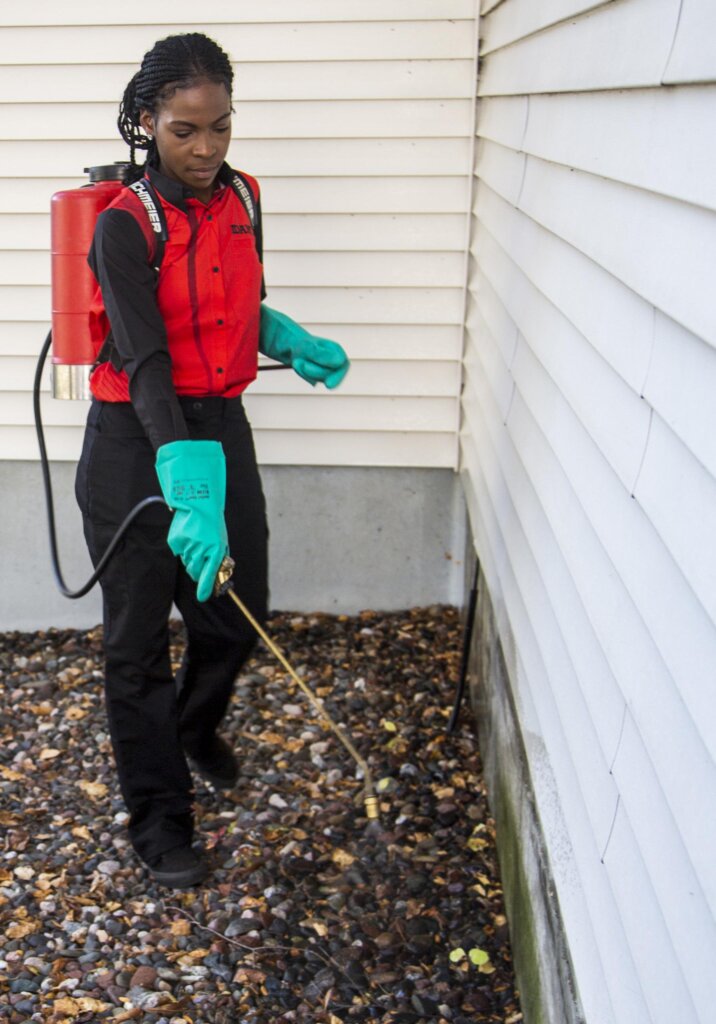Complete Pest Control for 365-day protection from pests.
Eco-Friendly Parasite Control Approaches for Managing Wild Animals in Urban Locations
Urban areas typically discover themselves at the junction of human activity and wildlife, causing special difficulties in pest management. Environmentally friendly techniques highlight sustainable conjunction, using methods such as environment alteration and all-natural repellents to alleviate human-wildlife disputes. These methods not only protect the setting however likewise improve neighborhood engagement in wild animals management. As metropolitan populaces continue to expand, comprehending the characteristics of wild animals communications ends up being significantly essential. What innovative approaches can be implemented to make certain both environmental balance and metropolitan security? Exploring this inquiry exposes an engaging landscape of potential solutions.
Recognizing Urban Wildlife Characteristics
Recognizing Urban Wild animals Dynamics is crucial for creating reliable and environmentally friendly insect control strategies. Urban locations are significantly becoming environments for different wildlife species, driven by factors such as habitat fragmentation, food availability, and human advancement. Recognizing these characteristics permits for a nuanced technique to pest administration that lines up with ecological principles.
Urban wildlife typically includes varieties such as raccoons, squirrels, and birds, which adapt to city settings, discovering specific niches in eco-friendly rooms, parks, and also household areas. Their existence can cause disputes with humans, particularly when they make use of personnels for food and shelter. Recognizing the actions and environmental roles of these types educates techniques that reduce unfavorable communications while promoting biodiversity.
Furthermore, acknowledging the interdependencies within metropolitan ecological communities helps in determining important areas for habitat conservation and repair. This understanding adds to the development of integrated insect administration (IPM) strategies that think about the eco-friendly balance, thus reducing reliance on dangerous chemicals. By cultivating conjunction in between human beings and urban wildlife, cities can create healthier environments that benefit both residents and local environments, leading the way for lasting metropolitan living.
All-natural Repellents and Deterrents
Natural repellents and deterrents provide a sustainable option to traditional insect control techniques by taking advantage of the power of nature to maintain undesirable types away. These green solutions generally utilize plant-based ingredients, vital oils, and various other naturally taking place materials that hinder parasites without harming the environment.
One effective all-natural repellent is peppermint oil, which is recognized to drive away rats and insects. Its strong aroma is undesirable to numerous pests, making it a preferred selection for urban settings. Vinegar and citrus peels can offer as deterrents, as their solid odors are generally unappealing to various wild animals.
In addition, diatomaceous planet is an all-natural powder that can be spread out in areas prone to insect activity, effectively drying out and preventing bugs without posing risks to non-target types. Garlic sprays and neem oil are acknowledged for their capacity to ward off a wide variety of insects, consisting of both insects and bigger wild animals.
Executing these natural repellents not just minimizes reliance on chemical pesticides but likewise advertises a healthier metropolitan community, cultivating a more well balanced conjunction between people and wild animals. By utilizing these techniques, city areas can properly manage insect populaces while minimizing ecological influence.
Environment Adjustment Techniques
Effective habitat alteration techniques play a vital duty in sustainable insect administration by modifying the atmosphere to make it much less helpful to pest infestations. By comprehending the environmental dynamics of city locations, homeowner can apply strategic modifications that discourage insects while promoting biodiversity.
(Pest Control Near Me)One main strategy involves preserving correct cleanliness. This consists of regular waste removal, safeguarding trash can, and removing standing water to decrease reproducing websites for insects and rodents. In addition, landscape design methods such as selecting native plants can boost environmental balance, providing habitats for advantageous microorganisms while minimizing sources for parasites.
Another vital strategy is to secure entrance points in buildings. Inspecting and fixing splits in structures, walls, and windows can considerably decrease pest access. Developing physical barriers, such as fences or plant barriers, can prevent wildlife motion into human-inhabited areas.
Integrated Parasite Administration Practices
Building upon environment adjustment methods, integrated parasite administration (IPM) methods offer a holistic strategy to managing insect populations while minimizing ecological impact. IPM combines numerous methods, including biological, cultural, mechanical, and chemical controls, to achieve effective insect administration.
Biological control includes the introduction of all-natural predators or parasites to decrease bug populaces. Social techniques, such as plant turning and hygiene, interfere with pest life process and decrease their habitats - Pest control service. Mechanical controls, like catches and barriers, provide prompt relief from parasite stress without chemical intervention
Chemical controls are utilized as a last resource, focusing on targeted applications that restrict harm to non-target varieties and the environment. The option of eco-friendly pesticides, when essential, is indispensable to the IPM framework. In addition, monitoring bug populations and analyzing prospective damages assists notify decision-making, making sure that treatments are timely and effective.
Community Participation and Education

(Equine Pest Protection)Workshops and informational sessions can furnish residents with understanding concerning indigenous species, habitat preservation, and effective non-toxic parasite management methods. Collaboration with institutions, regional companies, and federal government agencies even more improves instructional outreach, making certain that important info gets to varied target markets.
In addition, community-led initiatives, such as neighborhood clean-up days and habitat repair tasks, not just promote biodiversity however likewise enhance neighborhood connections. Pest control service. By motivating citizens to share their experiences and monitorings, areas can create targeted approaches that resolve details neighborhood parasite concerns
Integrating comments from locals into insect management plans enables a more receptive and flexible strategy to wild animals difficulties. Eventually, notified and engaged communities are essential to accomplishing long-lasting success in environmentally friendly parasite control, causing much healthier city settings that appreciate both human and eco-friendly needs.

Final Thought
In final thought, eco-friendly insect control comes close to deal sustainable services for taking care of urban wildlife. By focusing on environment modification, making use of all-natural repellents, and executing incorporated pest monitoring methods, communities can foster More Info a harmonious coexistence with local fauna.